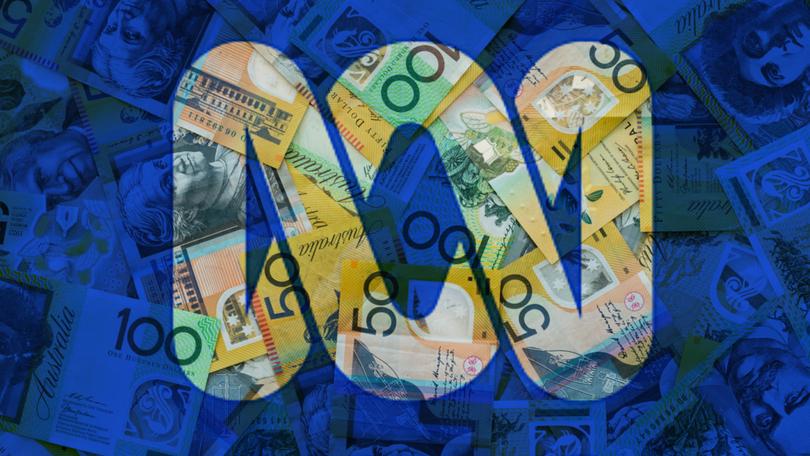ABC spent record $1.137 billion in taxpayer funds to keep afloat as audience numbers plummet
The ABC received more than $1.1 billion in taxpayer funds in the last year - and is set to receive more next year - even as its audience numbers plummet.

The ABC received more than $1.1 billion in taxpayer funds in the last year — a record injection into the national broadcaster — even as its audience dropped by almost 700,000 each week on average.
The ABC released its 2024 Annual Report on Tuesday, revealing it spent a record $1.137 billion in taxpayer funds in the last financial year. That is almost $30 million more than it got from the federal government in 2022-23.
Aunty’s report confirmed it was allocated $1137.6 million in the May 2023 Budget, which included a $20.9 million boost from the Better Funded National Broadcasters fund, and $8 million for the “Pacific Security and Engagement Initiatives” fund.
Sign up to The Nightly's newsletters.
Get the first look at the digital newspaper, curated daily stories and breaking headlines delivered to your inbox.
By continuing you agree to our Terms and Privacy Policy.The ABC was also allocated an additional $8.5 million over four years from 2023-24 as part of the Enhancing Pacific Engagement measure for Pacific integration transmission services.
It also received $98.7 million from “other sources”, including ABC Commercial, digital news content agreements, international grants and interest income throughout the year.
Despite this cash injection, the broadcaster returned just $100 million in self-made revenue last year — less than 10 per cent of its operating costs (more than $1240 million).
Financial analysts for the ABC said in the report “budget challenges... continue to arise” for the broadcaster. It cited ongoing “cost pressures as well as from changing audience expectations and technology requirements”.
“The ABC operated within its total sources of funds and revenue from Government for the 2023–24 financial year, recording a minor technical operating deficit of $2.2 million,” the financial statements read.
And, yet, the ABC is set to have an even bigger cash pool to dive into in 2025, with $1.196 billion in government funds being budgeted for the next financial year.
This is despite the report revealing the broadcaster’s combined average weekly viewership numbers decreased by 670,000 people — down from 13 million in 2022-23 to 12.3 million this financial year.
The ABC blamed the decline on “softening” broadcast TV reach and “to a lesser extent, audio reach”.
“This decline in broadcast consumption was partially offset by growth in ABC-owned digital and third-party platforms,” the report reads.
ABC Digital readers declined by 5 per cent, with the broadcaster citing a loss of “lighter audiences” due to “algorithmic changes” on search and social platforms. The ABC Homepage dropped 17 per cent year-on-year (to 398,000 viewers), alone.
But the ABC Listen app was the only major audience winner, with a 9.8 per cent year-on-year increase in weekly active listeners — rising from 452,000 in 2022-23 to 497,000 in 2023-24.
The report also revealed the pay packets of key management personnel at the ABC, including outgoing managing director David Anderson, who secured a total salary of $1,159,493 in the last financial year.
Mr Anderson resigned from his post in August, just a year into his second term in the top job.
He earned almost twice as much as the chief financial and content officers Melanie Lkeyn and Chris Oliver Taylor in the same period.
ABC news director Justin Stevens was paid $556,626 in the same financial period.
The Commonwealth Remuneration Tribunal determined the pay for members and directors of the ABC Board. New chair Kim Williams is set to earn at least $190,430 for his work next financial year — he earned $67,050 this year — while his deputy chair will earn at least $94,010 and board members will earn at least $62,710 in their role.
The ABC employed an extra 100 people in 2024 — growing its workforce to 3904, 1921 in NSW alone — despite Mr Anderson predicting 120 job cuts and the annual report highlighting the need to “focus on finding efficiencies” across the company.
